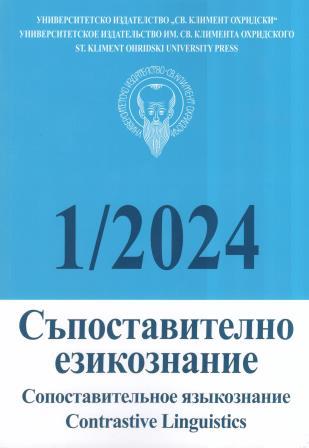Съпоставителен анализ на българския предлог за и новогръцкия предлог για
Contrastive analysis of the Bulgarian preposition for and the modern Greek για
Author(s): Finka SirakovaSubject(s): Language studies, Language and Literature Studies, Foreign languages learning, Theoretical Linguistics, Comparative Linguistics, Philology, Translation Studies
Published by: Софийски университет »Св. Климент Охридски«
Keywords: preposition; case; Modern Greek; Modern Bulgarian
Summary/Abstract: The main objective of this article is a comparative linguistic analysis of the Bulgarian preposition for and its Modern Greek equivalent – the preposition για. The analyses of the uses and the functions of the two prepositions from a contrastive perspective are made in view of their syntactic realization in word combinations and in the structure of sentences and their word-forming function in speech. As a result of the observations, similarities and differences in their respective realizations in use are derived empirically. The choice of these two prepositions as the focus of analysis is determined both by their high frequency in the written and spoken language production in the two Balkan languages, which differ in their morphological nature – the synthetic Modern Greek (with a pronounced tendency towards analyticity) and the more analytical Bulgarian language, and by the diversity of relations expressed by them.
Journal: Съпоставително езикознание / Сопоставительное языкознание
- Issue Year: 2024
- Issue No: 1
- Page Range: 100-122
- Page Count: 23
- Language: Bulgarian
- Content File-PDF

